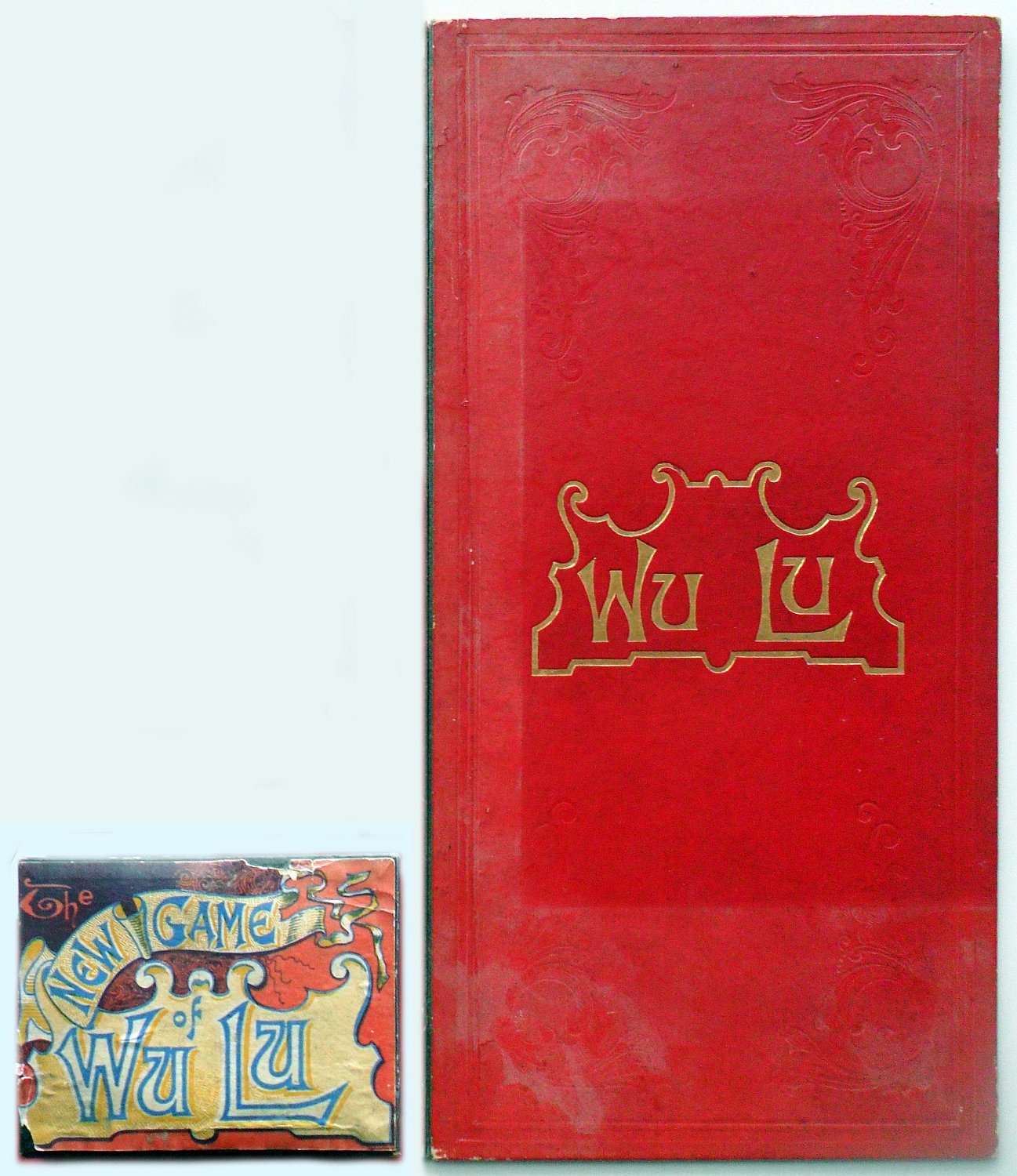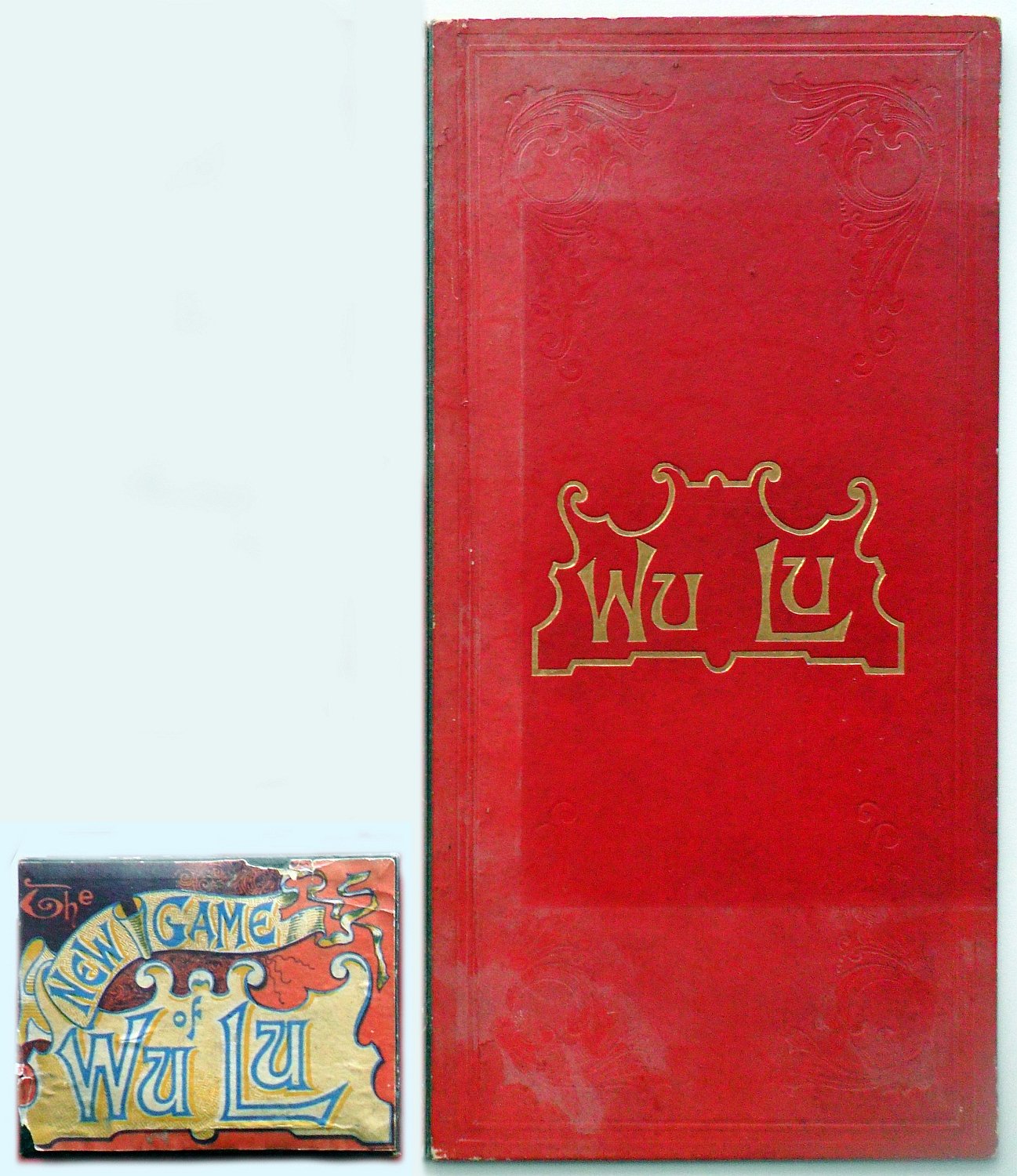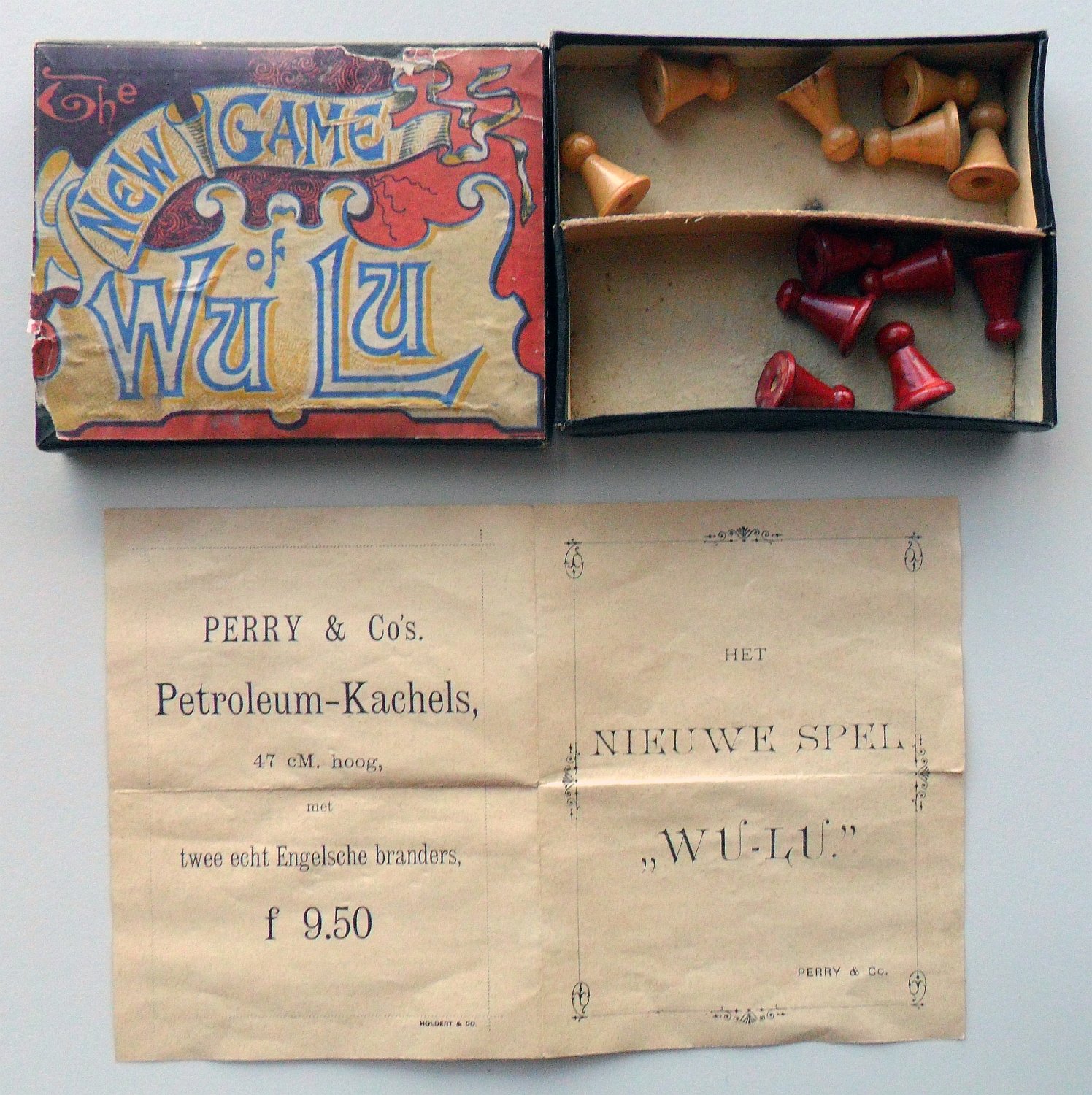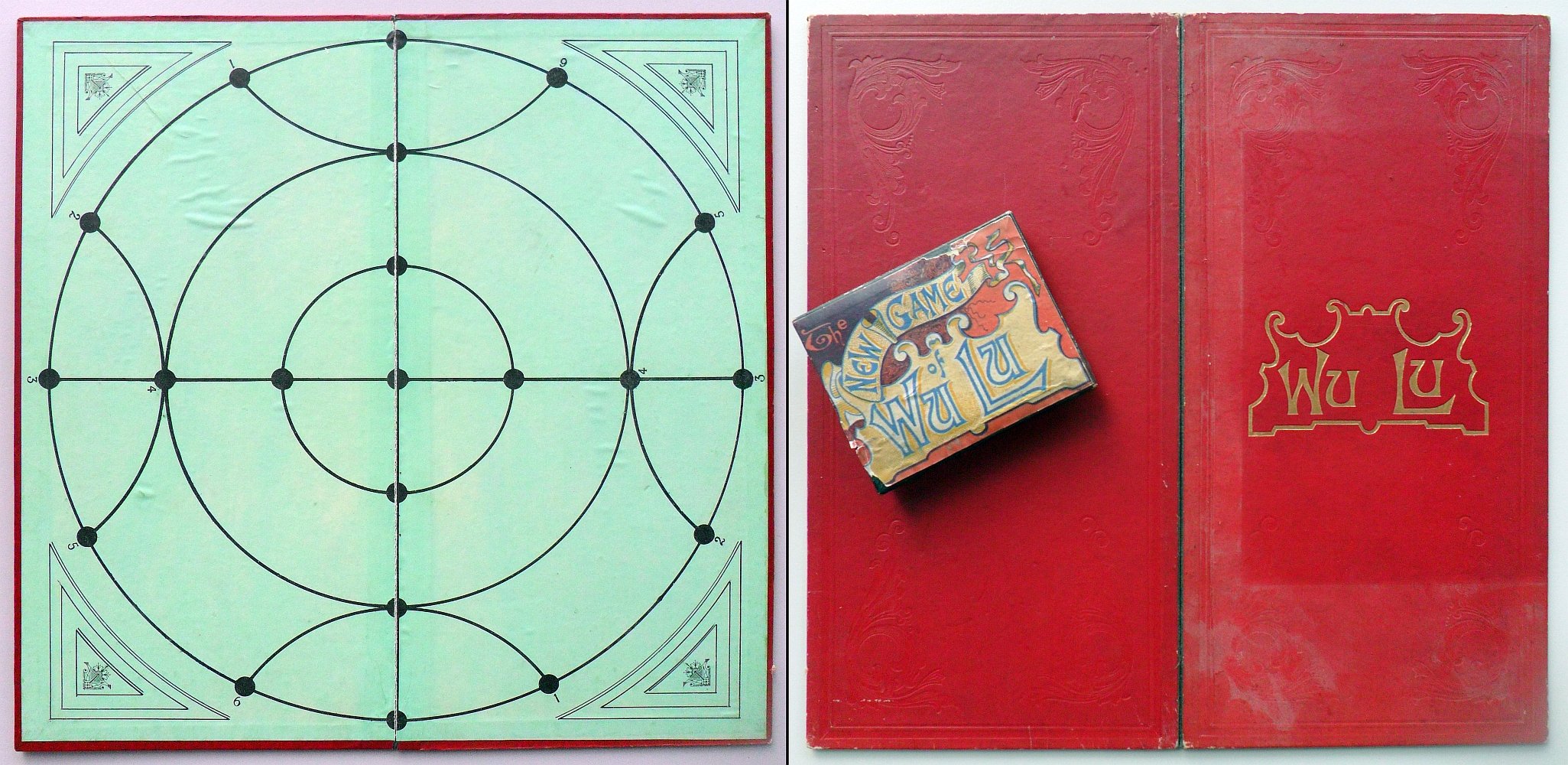The New Game of Wu Lu (Het Nieuwe Spel Wu Lu) 1900
Uitgever:
Auteur:
Land van oorsprong:
Beschikbare talen:
Herkomst:
schenking Fred Horn
Bron:
Omschrijving
Bron: Hongs
Fred Horn stuurde ooit een foto van dit spel naar spelhistoricus Thierry Depaulis (BGS), die het daarop vermeldde in een forum dat handelde over een vraag van ene William Woo over een soortgelijk spel (zie het tekeningetje hieronder):
Yes, it's a game. The object is not a soccer-ball design, but it is a game
board, where the pieces are placed on the intersections... I know two games
that can be played on this board (nothing to do with a circular
hnefatafl/brandubh, sorry Lex!):
1. "Il gioco dell'orso" (Italian for "the game of the bear") is played at
Forgnengo (Piedmont, Northern Italy). It is a rare example of an
"Asymmetric Blockade Game", a category that I have recently discovered and
presented in a talk given at the IIIrd "Board Games in Academia" Colloquium
in Florence (Italy too, but that was a happy coincidence). In these games
one player has one piece (with no capturing power) while the other has
between three and five and tries to block his opponent; the single piece
tries to escape (as long as it is possible: the "hunters" always win).
Actually the game had been previously published by Carlo & Luca Gavazzi in
their book 'Giocare sulla pietra' ("Playing on rock" - Ivrea, 1997). Carlo
and I have afterwards published an article, in Italian, in Rivista
Biellese, October 1999 ("L'orso e i suoi fratelli" = The Bear and his
Brothers).
2. "Sz' kwa" ("Four Directions") is a Chinese game played in South Taiwan.
It is shown in R.C. Bell & M. Cornelius, Board Games round the World,
Cambridge, 1988, pp. 14-5. It is a "war-game" (in Murray's sense of the
words), with the interception captures, where each player has 20 pebbles.
Finally Fred Horn, of Holland, sent me a photocopy of a paper board game
called "Het nieuwe spel 'Wu-Lu'" (The New Game Wu-lu), a game used to
advertise oil stoves ("met twee echt Engelsche branders") manufactured by
Perry & Co. (late 19th century) where the design has an extra concentric
circle; it is also a "war-game" with the interception captures, but here
the players use 6 gamesmen each. (I suspect 'Wul-lu' to have some Chinese
origin too...)
Collectie Fred Horn, Vlaams Spellenarchief te Brugge
 2-2 spelers
2-2 spelers
Vormingen






